Reading: Matthew 14:22-33
Why did you doubt?
This is one of those Saint Peter stories in the Gospel that sometimes causes preachers to give Saint Peter a hard time about his “little faith.” I think Saint Peter displayed great faith here, although with an admittedly somewhat-rocky execution. And I think this wonderful little story – one of my favorite Gospel stories – speaks to us in this very ponderous and difficult time, as our world struggles with a pandemic with seemingly no end nor cure in sight. In times like this, we people of faith have special recourse to the Gospel and the saints, those same faithful friends who accompany us in all the good times and bad times of our lives. All the more so now.
So I think this story shows Saint Peter doing three things right, and these right things are models for us people of faith in a time like this.
First, he goes to Jesus. Realizing that what they originally took to be a ghost was, in fact, their Lord, Peter brazenly offers to come to Jesus on the water. Why? We could certainly impute all sorts of motives to Peter, maybe even ascribe it to folly. But what’s right about this is that he wanted to be with Jesus, and Jesus wasn’t in the boat. In the midst of a storm, he knew it was better to be with the Lord.
I don’t know about you, but when I look around, it’s as stormy as I ever want to see the world right now. We can go all sorts of places. We can watch the wrong Netflix movies, or sit on the couch all day, or spend too much time on the internet, or stand in front of the refrigerator a million times. But none of that is healthy. You need to go to Jesus. And I know that seems impossible when church is closed and you can’t receive the sacraments. That’s a sadness for all of us. But you can still go to Jesus in your heart, you can pray and read scripture. You absolutely have to do those things. Get out of your boat and go where Jesus is.
The second thing Saint Peter does right is that he actually walks on the water. How does he do that? He does that by looking at Jesus. Notice very carefully that he only stays above the water while he’s looking at Jesus. When instead he notices how strong the wind was, he begins to sink. Eyes on Jesus, he’s walking on water; eyes on the storm, and he’s sinking into the depths.
Our eyes can be fixed in the wrong place pretty easily these days. We can scroll endlessly through Facebook. We can watch the news for hours on end. But none of this is helping us, friends. All it’s causing is stress and sadness and a deep hole that we can’t fill up. We have to look at Jesus. Participate in a livestreamed Mass. Pray the stations of the cross and the Rosary. Meditate on the day’s readings. Read one of the Gospels. Anything to keep your eyes on Jesus. Because if all you’re looking at is the storm, you’ll sink deeper and deeper. Don’t let that happen.
The third thing Saint Peter models for us is when he finds himself sinking, he calls out to Jesus. “Lord, save me!” When he does that, he finds out that he can’t ever sink so deep that Jesus can’t pull him out. Jesus reaches out his hand, catches him, and they both get back in the boat.
“Lord, save me!” Sometimes we don’t know what to pray when things get bad. I remember back in seminary when both of my parents came down with cancer and I had no idea how to pray anymore. All I could say was, “Help.” Kind of like, “Lord, save me!” And God did help: he sent some of my classmates to come and pray with me and help me get my head and heart back where they needed to be. Those little prayers are often more effective than ten minutes of endless talking at God.
Because we’ve never sunk so far that Jesus can’t be our rescuer. And when we’re sinking, he’s the best source of refuge. Don’t ever forget that. He’s out there, walking on the water, ready to grab your hand at any point. Don’t ever think your problems are too big or too little to call on Jesus. Sometimes we forget that we have a Savior, and sometimes we don’t think we need a Savior, all the while sinking deeper into the ocean of despair. Jesus doesn’t want that to be so. Reach out your hand, call his Name, and be saved.
One last thing we should note in this story: Jesus says, “O you of little faith, why did you doubt?” Saint Peter did in fact have little faith. But I would assert that it’s better to have little faith than none at all. Saint Peter’s little faith put him on the water with his Lord, and got him saved when he was sinking. The other guys in the boat didn’t have those opportunities for growth. Saint Peter always wanted to be with Jesus. Sometimes – okay – often, he messed up. But every time our Lord gave him a second chance. And every time, that second chance gave Saint Peter the grace of growing in his faith. Saint Peter is indeed a good model for all of us, all of us with our little faith.
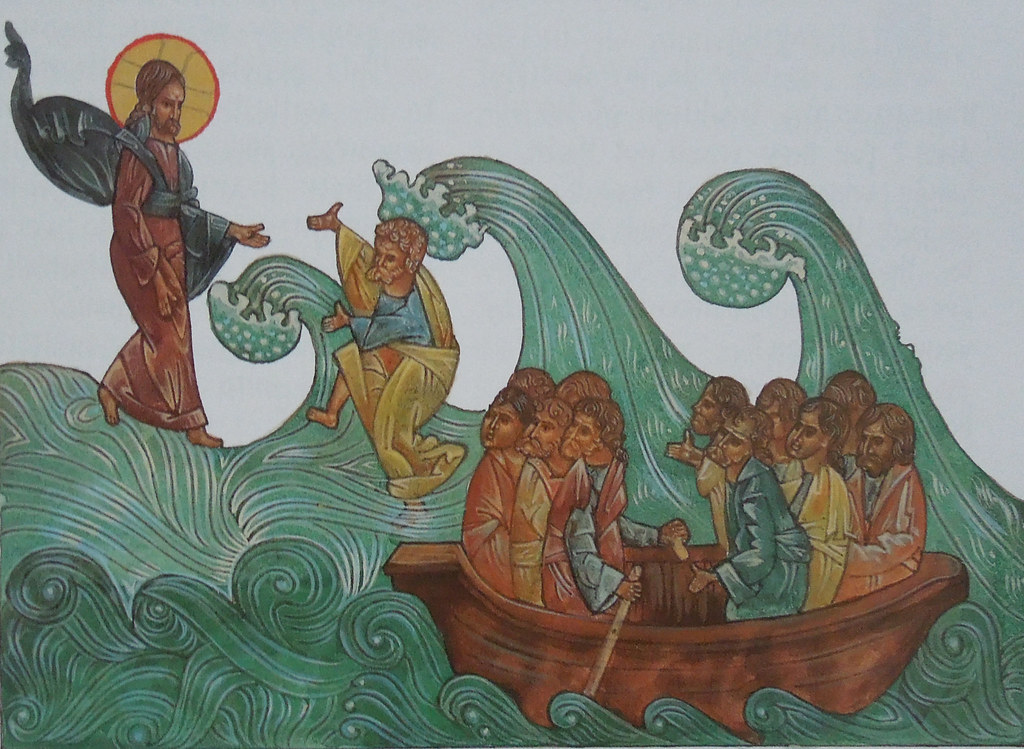
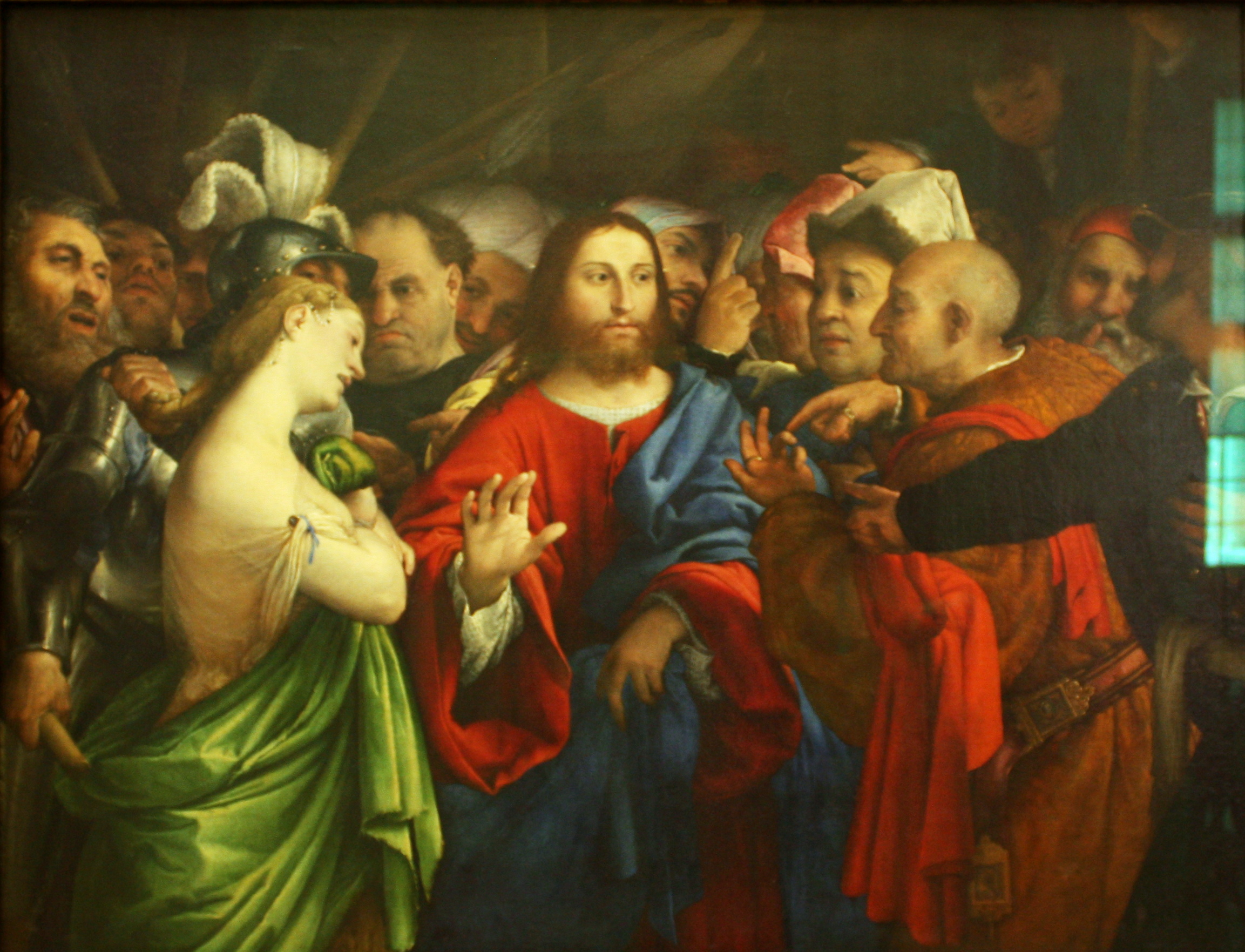

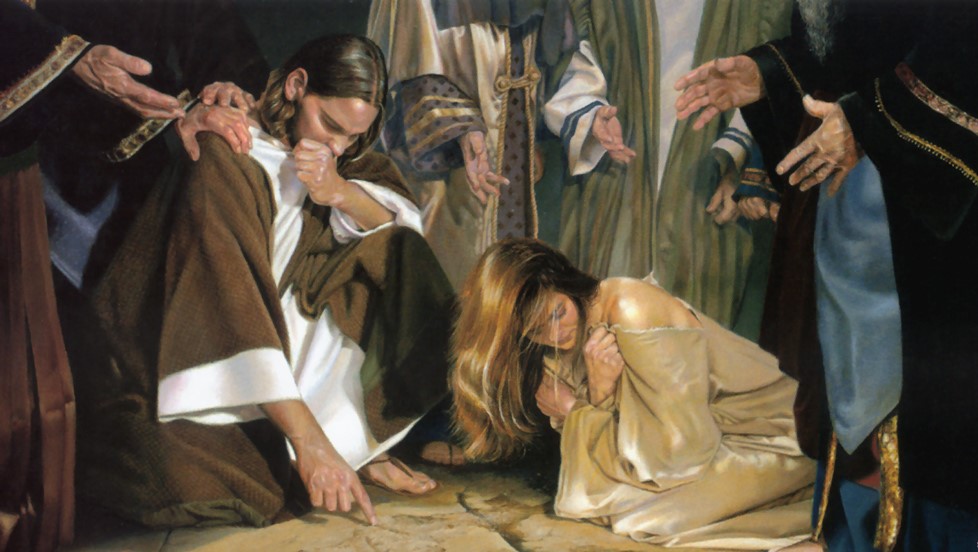
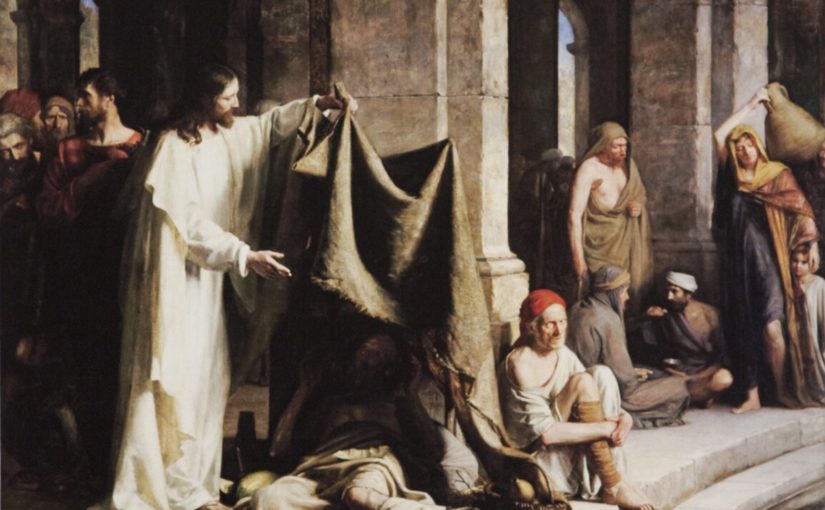
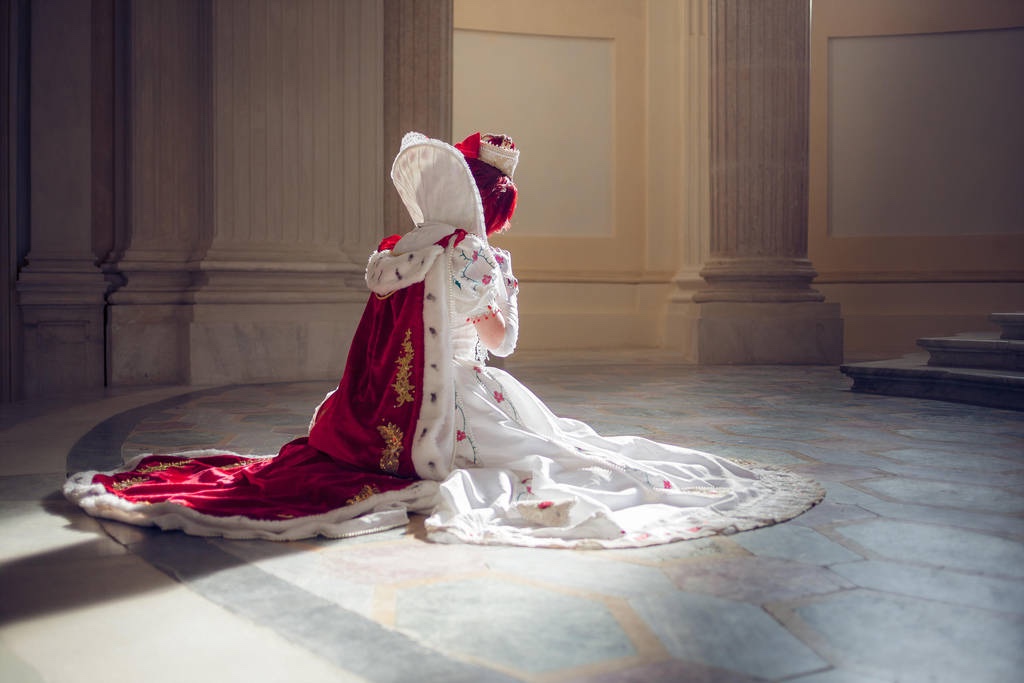


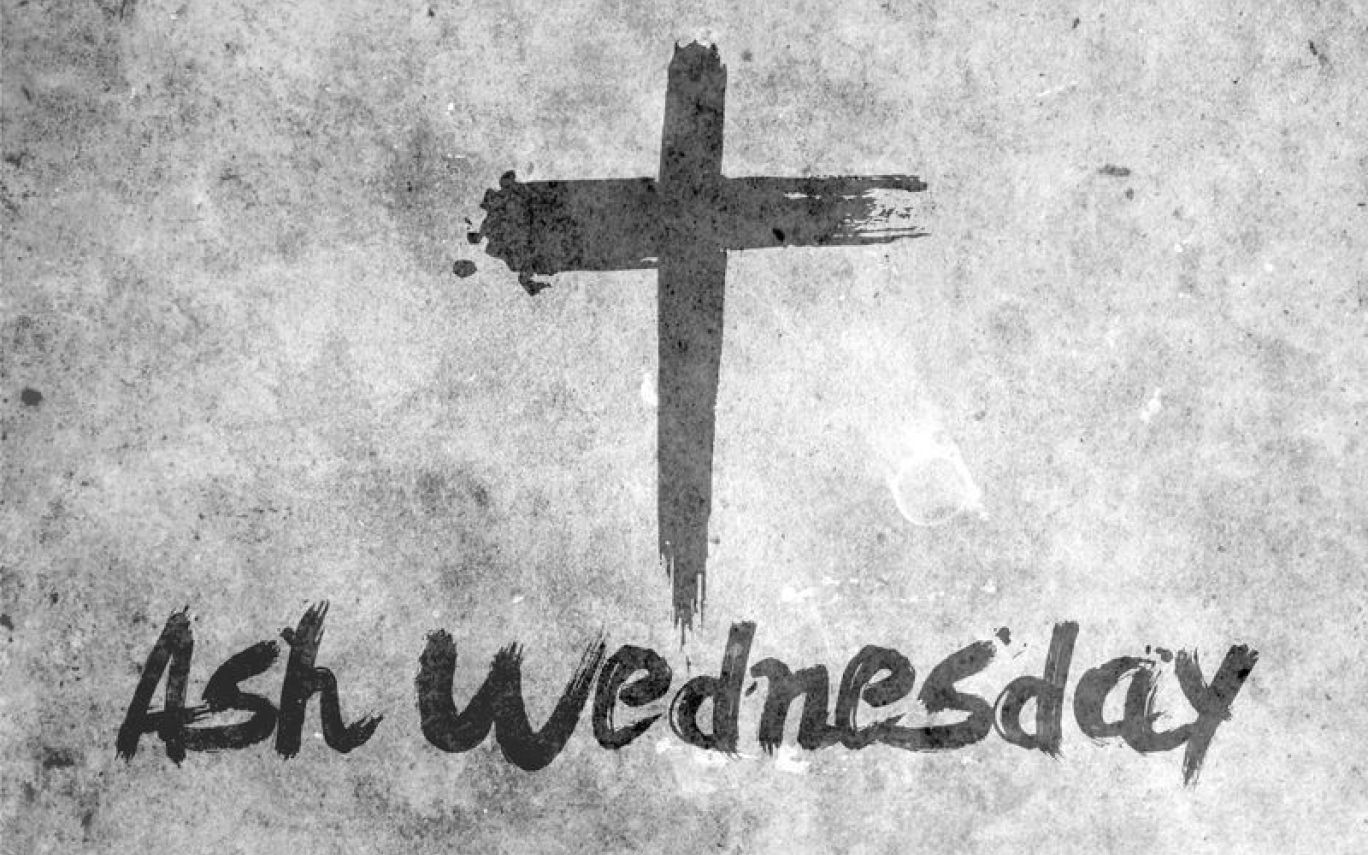
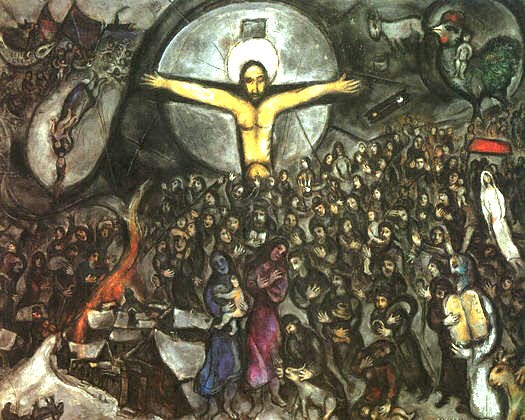
You must be logged in to post a comment.